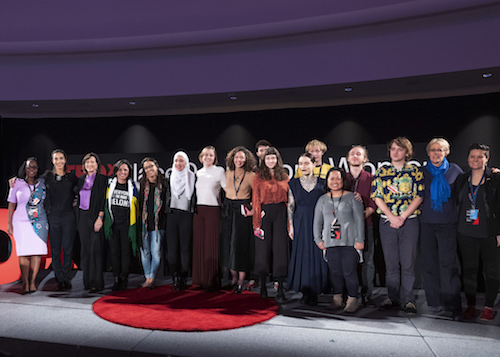
Those who know me would say that I am not one for hyperbole. However the speakers I coached at the UN TEDx PlacedesNationsWomen event in December completely hit the target.
I coached 8 of the 11 speakers at the event, celebrating women’s empowerment.
The speakers had great content and delivery, and kept the audience engaged from start to finish.
Yet, it proved to be a lot of work for all those involved with many lessons learnt. So for those who are planning to organise a TEDx, give a talk or want to become a more impactful public speaker, here are 5 do’s and 5 don’ts from coaching and observing speakers.
Do’s
- Select a speaker fluent in the language of the talk. You have to memorise your TEDx talk, which means it helps to be absolutely fluent in the language. This will also ensure you sound natural and conversational when you deliver it. And a good memory is key!
- Have an inspiring personal story to tell. You have to put yourself in the story for it to resonate with the audience. Many professionals shy away from the personal, preferring to speak about “it” rather than “I”. But this is not a TEDx talk. You have to be prepared to open up in your talk, share your experiences, opinions and values.
- Leave behind your professional presenting style. You are no longer an academic, activist or lawyer, you are now a storyteller. You are not there to share your knowledge, but to persuade the audience your idea has merit. This means getting rid of unnecessary detail. You need to set the context, and what is most important are the individual stories you tell to illustrate your points and the narrative arc of the talk.
- Match your words to your voice and body language. You have to make sure that these three channels of communication are aligned. You need to guide the audience so they understand immediately the emotions (joy, sadness, compassion) you want them to feel. And to do this you have to modulate your speed, pitch and tone. The pause, for example, will let the emotion you want to convey hover in the air so that the audience has time to absorb it.
- Structure with clear signposts. You need to help your audience with short declarative sentences, which tell them where you are going. For example, this is my story of empowerment; I was in denial; or myths and taboos lead to stigma and harmful practices.
Don’ts
- Don’t write your talk to be read. Write your talk to be spoken. This means adding some short sentences as this will aid delivery and give the talk rhythm. Don’t weave your ideas subtly from one paragraph to another – talks have to be understood at first hearing, not second reading!
- Don’t write your talk too early. Talks take time to evolve. The talk you initially write may be too neutral. As you increase your understanding of what is a powerful TEDx talk, you will realise that it is an organic process as you gain greater confidence in your storytelling abilities.
- Don‘t write your talk at the last minute. You need time to absorb the talk, practice it by saying it out loud so that it becomes part of you. If you leave it late, then you are likely to fall into a deadly TEDx trap of not quite mastering your talk. If you recite it, the audience will feel that you are talking at them rather than to them.
- Don’t manipulate the audience. If you ask people to take an immediate action, make sure it is for the right reason and a coherent part of your talk. If it is a forced action, people are confused at best and manipulated at worst.
- Don’t look to be good, but to be yourself. Audiences have a sixth sense. They immediately spot those with fake smiles, tone and body language. They know when, behind the rhetorical flourishes, there is no substance. They don’t mind if you trip over your words, or even go blank, as long as you remain true to yourself, leave your ego behind and put yourself at the service of the audience.
Author's bio
 Claire is a former BBC correspondent and international spokeswoman who is passionate about helping people communicate with confidence. Since 2006, she has successfully trained hundreds of professionals in the art of presenting and public speaking, talking to the media, managing communications in a crisis, and writing for the web. In addition, she has coached C-level executives and public figures to give powerful TEDx and TED style talks in Europe and the Middle East. A Swiss and UK national, Claire trains and coaches in French and English.
Claire is a former BBC correspondent and international spokeswoman who is passionate about helping people communicate with confidence. Since 2006, she has successfully trained hundreds of professionals in the art of presenting and public speaking, talking to the media, managing communications in a crisis, and writing for the web. In addition, she has coached C-level executives and public figures to give powerful TEDx and TED style talks in Europe and the Middle East. A Swiss and UK national, Claire trains and coaches in French and English.
Claire is also a highly experienced moderator having facilitated panel discussions with government ministers, NGO activists, humanitarians and human rights specialists at major events.






